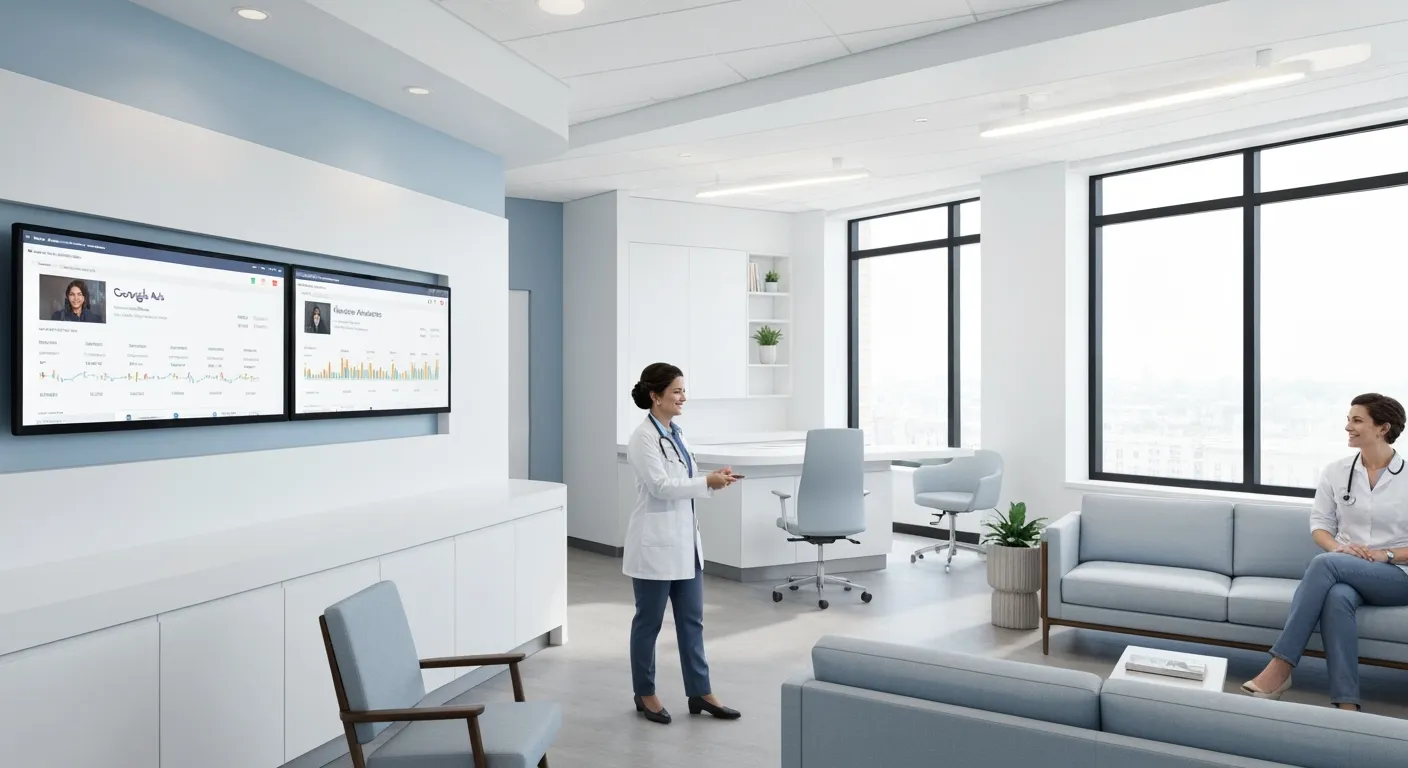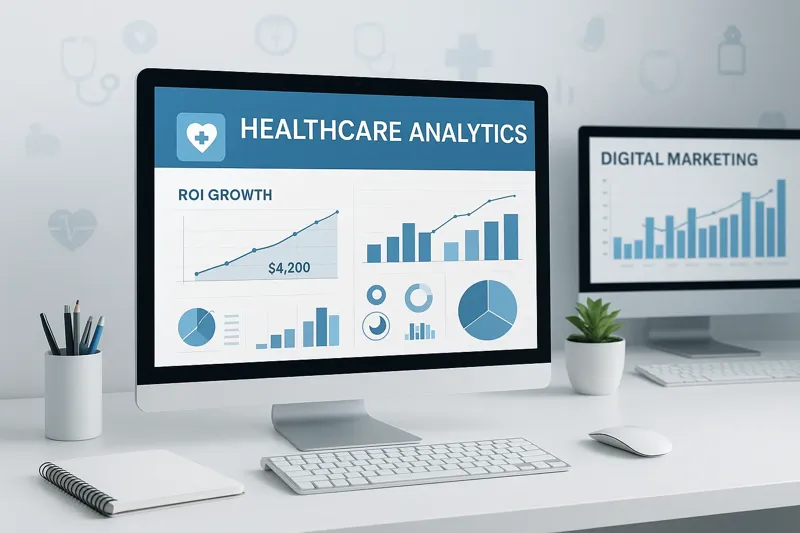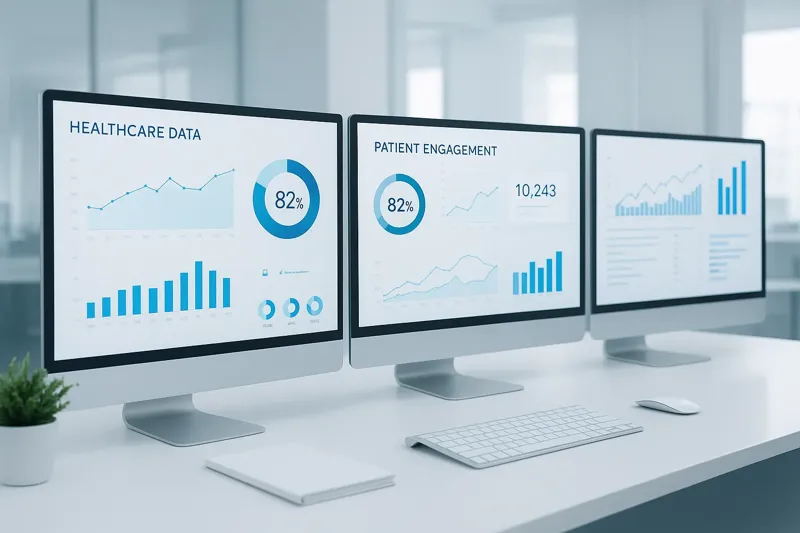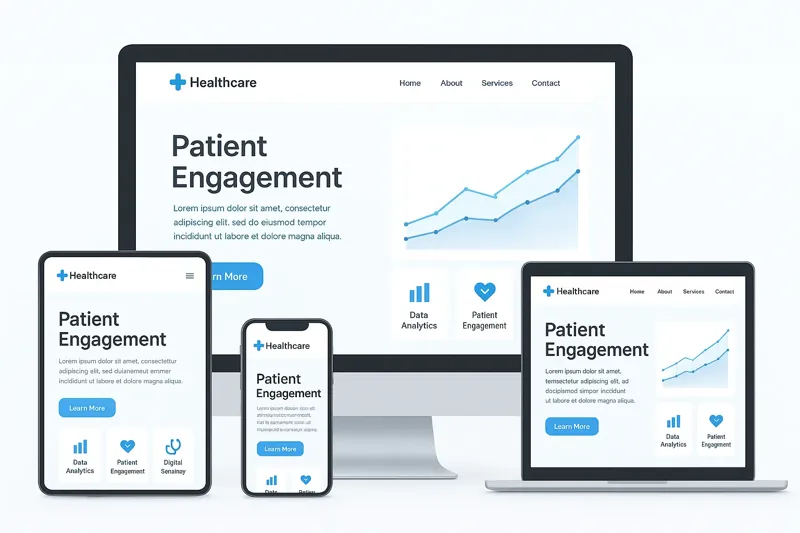The Power of PPC in Modern Medical Marketing
In today’s digital age, medical practices face increasing competition and rising patient expectations. Harnessing the power of Google Ads and PPC campaigns offers healthcare providers a strategic avenue to connect with patients actively seeking medical services. This article explores comprehensive strategies and compliance essentials to maximize PPC success, boost patient acquisition, and elevate medical practice visibility.
Understanding the Role of Google Ads in Healthcare Marketing
Fundamentals of Google Ads in Healthcare
Google Ads is a digital advertising platform that allows healthcare providers to place targeted advertisements in search engine results. This platform helps medical practices appear in front of potential patients at the moment they are actively searching for healthcare services. Campaign organization includes structuring accounts, campaigns, ad groups, and ads to enhance relevance and performance. See our Healthcare PPC guide for best practices.
Pay-Per-Click Advertising Model Benefits
Google Ads operates on a pay-per-click (PPC) model, meaning healthcare providers only pay when someone clicks their ad. This makes it a cost-effective option, allowing smaller practices to compete with larger providers without an extensive upfront investment. Campaign budgets can be tailored to suit each healthcare provider's capacity. Consider setting bids and budgeting strategies to maximize ROI.
Importance of Online Visibility for Medical Practices
With over 7% of daily Google searches related to health, online visibility is crucial. A strong Google Ads campaign helps practices capture this audience, driving patient bookings and inquiries. Combined with a user-friendly, mobile-optimized website, it significantly increases patient engagement and conversion. Learn about the Importance of Digital Marketing in Healthcare for further insights.
Google Ads Targeting Capabilities
The platform's sophisticated targeting options allow medical practices to reach specific audiences effectively. Geographic targeting (geo-targeting) ensures ads reach local patients within desired service areas. Demographic and behavioral targeting further help tailor ads to the right patient personas, maximizing relevancy and return on investment. Explore Demographic targeting in Google Ads and Targeting Tools in Google Ads for details.
How Does Google Ads Benefit Healthcare Providers?
Google Ads enables healthcare providers to reach a wider audience by targeting patients actively searching for relevant medical services. The pay-per-click model makes it cost-effective since practices pay only when users click on their ads, ensuring advertising budgets are spent efficiently. Additional benefits include using ad extensions and monitoring campaign performance to improve outcomes.
Crafting Effective PPC Campaign Structures and Keyword Strategies
What are the essential components of an effective healthcare PPC campaign?
An effective healthcare PPC campaign hinges on a well-organized account structure. This includes logically arranged campaigns and ad groups that match specific medical services or patient conditions. For instance, separate campaigns might focus on urgent care versus dental services, with corresponding ad groups targeting precise conditions or treatments. This hierarchy improves ad relevance and allows for precise budget allocation. Learn more about Healthcare PPC campaign optimization and PPC campaigns for healthcare.
Keyword research is a critical part of campaign success. Healthcare PPC requires a tailored approach with keywords closely related to the practice's services. Using long-tail keywords, such as "pediatric asthma treatment near me" or "knee replacement surgeon in Dallas," helps to capture high-intent searchers. These keywords often have lower competition and higher conversion potential. See resources on Keyword Research for Healthcare Ads and Healthcare PPC keyword strategy.
Localizing keywords by including geographic terms is important because healthcare services are typically regional. Geo-targeting paired with region-specific keywords ensures ads reach patients near the practice, improving engagement and reducing wasted spend. For details, review Geo-targeting in Healthcare PPC and Geo-targeting in Google Ads for Doctors.
Negative keywords play a vital role by filtering out unrelated or low-quality traffic. For example, excluding terms like "free," "cheap," or non-relevant medical conditions prevents clicks from users unlikely to convert, enhancing campaign efficiency. Explore Using Negative Keywords in Healthcare PPC and Negative Keyword Strategies.
Together, these components create a focused, relevant, and efficient PPC campaign that drives patient acquisition while optimizing advertising spend. For comprehensive strategies, consult Healthcare PPC Best Practices and Effective PPC Strategies for Healthcare.
Optimizing Ad Copy and Landing Pages for Higher Conversions
How can ad copy and landing pages be optimized for medical PPC?
Creating effective ad copy and landing pages in medical PPC campaigns requires a focus on compliance, engagement, and relevance. Ads should contain compelling, benefit-focused messaging that is clear and honest, strictly adhering to healthcare advertising regulations such as HIPAA compliance in medical advertising and Google healthcare ads compliance. Highlighting unique selling points and patient benefits encourages clicks and builds trust.
Landing pages must align closely with the ad content to provide a seamless experience for visitors. This means the landing page should address exactly what the ad promises, using consistent language and keywords. Fast load times and high usability are essential to reduce bounce rates and keep potential patients engaged, in line with Landing page optimization for healthcare ads and Effective healthcare ad copy.
Mobile optimization is critical since the majority of healthcare searches occur on smartphones. Mobile-friendly landing pages with clear calls-to-action—like prominently displayed phone numbers, appointment forms, or click-to-call buttons—simplify the patient conversion process and improve overall effectiveness, as detailed in Mobile-optimized healthcare ad campaigns and Click-to-call features in Google Ads.
Writing compelling, compliant ad copy
- Use benefit-focused language that resonates with patient concerns, per Benefits-focused messaging.
- Avoid misleading claims and ensure accuracy, following Healthcare advertising compliance policies.
- Include strong calls-to-action encouraging appointments or contact, informed by Healthcare Call to Action Strategies.
- Keep language simple and trustworthy to boost patient confidence, aligning with E-E-A-T in healthcare PPC.
Aligning ads with landing page content
- Match headlines and offers between ads and landing pages, using strategies from Landing page optimization for healthcare ads.
- Use targeted keywords consistently, following Keyword research for healthcare ads.
- Clearly describe services or treatments promised in the ad, ensuring compliance as per Healthcare PPC advertising rules.
Benefits-focused messaging
- Explain how the service can improve patient outcomes, based on Patient-centered healthcare ads.
- Highlight expert credentials or simplified access to care, referencing Authoritativeness and trustworthiness in PPC.
- Address patient pain points or common questions, supported by Creating patient personas for PPC.
Mobile-optimized landing pages with clear calls-to-action
- Ensure quick page loading on all devices, as explained in Mobile optimization for healthcare ads.
- Design for easy navigation and form completion, detailed in Healthcare PPC best practices.
- Use buttons that prompt direct contact, such as "Call Now" or "Book Appointment," referring to Click-to-call features in Google Ads.
By combining engaging, compliant ad copy with aligned, mobile-friendly landing pages that present clear calls-to-action, healthcare PPC campaigns can significantly increase patient engagement and conversion rates.
Advanced Google Ads Targeting Techniques for Medical Practices
What targeting strategies maximize PPC effectiveness for medical practices?
Effective targeting is imperative for maximizing the impact of PPC campaigns in healthcare.
Geographic targeting and geo-fencing
One of the most critical tactics is geographic targeting, which ensures that ads are shown to users within a specific area relevant to the medical practice. Geo-fencing adds precision by defining virtual boundaries around locations, enabling campaigns to target potential patients who enter or remain near specific medical facilities or neighborhoods. This local focus is essential since healthcare services are mainly sought locally. See more on Geo-targeting in healthcare PPC.
Demographic and behavioral targeting
Beyond geography, demographic targeting hones in on patient segments by age, gender, income level, or parental status. Behavioral targeting utilizes users’ online activity patterns and interests to enhance audience relevance. For example, a geriatric clinic may target elderly individuals by combining demographic data and interest signals. Learn about Demographic targeting in healthcare advertising and Targeting the right audience in healthcare PPC.
Retargeting strategies
Retargeting campaigns aim to re-engage users who have previously visited the medical practice’s website but did not convert. These ads remind potential patients of services or encourage appointment booking. Remarketing has been shown to increase conversion rates by keeping the practice top-of-mind. See details on Remarketing in healthcare PPC and Remarketing Campaigns on Facebook.
Use of ad extensions like call and location buttons
Ad extensions improve ad visibility and convenience. Call extensions enable immediate contact from mobile devices, crucial for urgent inquiries. Location extensions help users quickly find practice addresses and directions, improving patient engagement and likelihood of visits. Explore best practices on Using ad extensions in Google Ads and Ad extensions in healthcare PPC.
Combining these targeting strategies with continuous monitoring of campaign metrics such as click-through rates (CTR) and conversion rates ensures healthcare providers optimize their Google Ads for better performance for maximum effectiveness. Additional insights on Analyzing Google Ads campaign performance and Healthcare PPC campaign optimization can help maximize ROI.
Navigating Healthcare Advertising Compliance and Regulations
What compliance requirements must medical PPC campaigns meet?
Medical PPC campaigns must adhere to strict compliance rules to protect patient privacy and ensure truthful advertising. Under HIPAA compliance in medical advertising, campaigns cannot include any protected health information (PHI), safeguarding patient confidentiality. This means healthcare advertisers must avoid collecting or displaying personal health data within their ads or landing pages.
Google’s healthcare advertising policies
Google enforces comprehensive policies specifically for healthcare advertising. Advertisers are prohibited from promoting unapproved pharmaceuticals, certain restricted drug terms, and speculative or experimental medical treatments. Google healthcare ads compliance guidelines also ban promotion of prescription opioid painkillers except under tightly controlled conditions. Ads must be accurate, transparent, and comply with local regulations to maintain integrity and consumer trust.
Certification requirements like LegitScript
Certain healthcare services and products require certification to advertise through Google Ads. For example, online pharmacies and telemedicine providers often must have LegitScript certification for healthcare ads or other credentials verifying legitimacy. Certification helps ensure compliance with platform rules, legal standards, and ethical advertising practices, which is critical for campaign authorization and success.
Restrictions on drug advertising and sensitive content
Advertising prescription drugs involves significant restrictions, including registration and approval in the advertiser’s jurisdiction. Google also limits ads related to addiction services, clinical trial recruitment, and fertility treatments based on geographic and regulatory considerations. Sensitive content promotion requires clear adherence to Healthcare advertising policies and healthcare authorities' standards to prevent misleading or harmful claims.
These compliance frameworks ensure that medical PPC campaigns remain legally compliant, ethically responsible, and effective in reaching patients while protecting public health.
Measuring and Optimizing PPC Campaign Performance
How is the success of healthcare PPC campaigns measured and improved?
The success of healthcare PPC campaigns is primarily measured using key performance indicators (KPIs) such as click-through rate (CTR), cost per click (CPC), conversion rate, and return on investment (ROI). CTR indicates how engaging and relevant the ads are to the target audience, while CPC helps monitor advertising costs. Conversion rates indicate how well ads and landing pages turn clicks into patient appointments or inquiries.
Key performance indicators (CTR, CPC, conversion rate)
Tracking CTR, CPC, and conversion rates provides a clear view of campaign effectiveness. A high CTR paired with a reasonable CPC usually signifies strong ad relevance. Meanwhile, improving conversion rates depends on how well landing pages and ads match user intent and offer clear calls to action.
Tools for analytics and reporting
Healthcare marketers utilize Google Ads analytics alongside Google Analytics to monitor campaign performance in real time. These tools offer insights into user behavior, geographic data, device use, and conversion tracking, enabling marketers to make informed optimization decisions and demonstrate measurable ROI.
Regular A/B testing and adjustments
Continuous optimization through A/B testing of ad copy, creatives, and landing pages is vital. Testing multiple headlines and descriptions allows determination of the most effective messaging that resonates with healthcare audiences, ensuring ads stay relevant and compelling. Learn more about ad copy testing and optimization strategies.
Using negative keywords and bid management
Refining negative keywords eliminates irrelevant search traffic, which improves ad relevance and prevents wasted spend. Additionally, adjusting bidding strategies based on performance data helps balance budget control and maximize conversions. Using automated bid strategies alongside manual adjustments optimizes campaign efficiency. For further guidance, see bidding strategy optimization and negative keywords in healthcare PPC.
Regularly reviewing and adapting campaigns based on these practices leads to sustained improvement in healthcare PPC effectiveness, maximizing patient engagement and marketing ROI.
Integrating PPC with Broader Digital Marketing Strategies
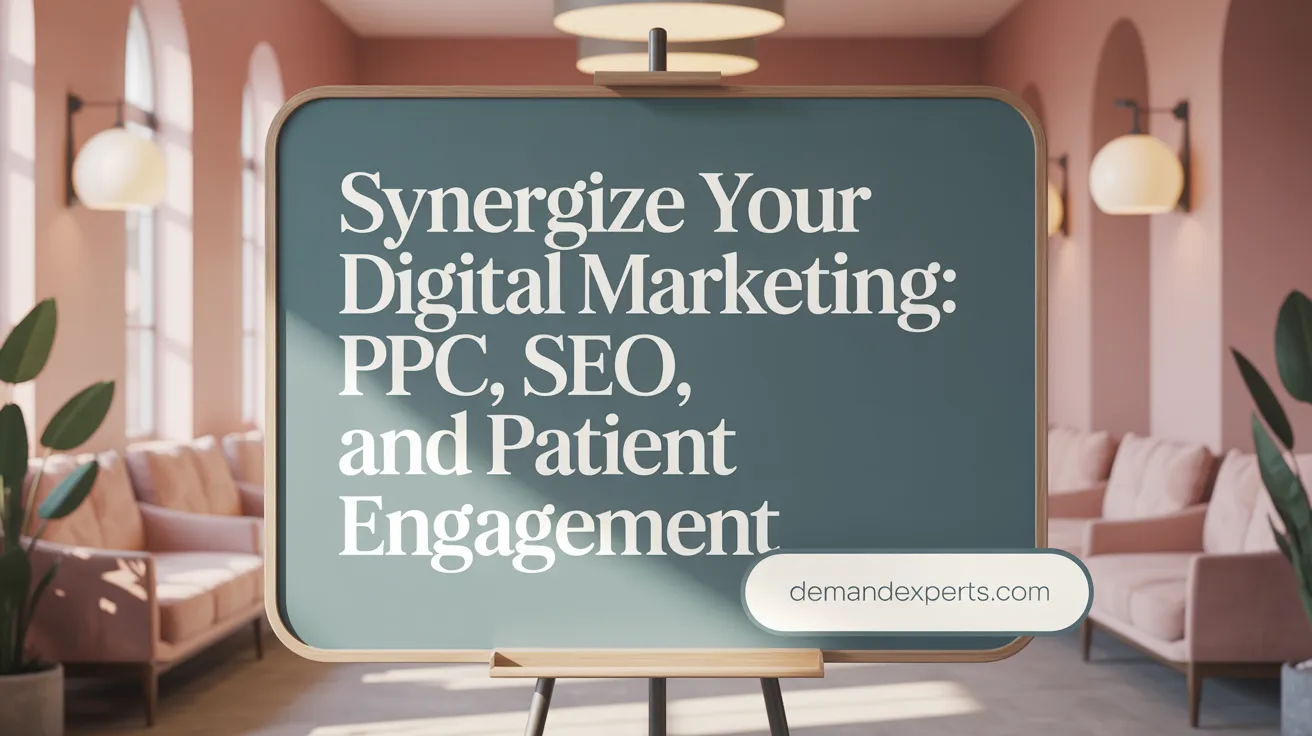
How does PPC complement other digital marketing efforts for medical practices?
Pay-per-click (PPC) advertising offers medical practices the advantage of immediate visibility by placing their ads in front of patients actively searching for healthcare services. This rapid exposure effectively fills the gap while search engine optimization (SEO) strategies mature, which typically take longer to develop but yield sustainable, long-term organic traffic.
Combining PPC with SEO
Using PPC alongside SEO creates a comprehensive digital marketing approach. PPC targets high-intent search queries instantly, allowing practices to attract patients at crucial decision-making moments. Meanwhile, SEO works on building authoritative website content and improved rankings in organic search results, enhancing credibility and reducing reliance solely on paid channels. For more details, see Healthcare PPC and SEO integration.
Reputation and review management
Positive patient reviews are essential for trust-building and influencing conversions. Integrating online reputation management with PPC campaigns ensures that potential patients find consistent reputable information, building confidence at every interaction point. Encouraging satisfied patients to leave reviews and showcasing these testimonials prominently can reinforce ad campaign effectiveness. Learn more about Managing online reviews for healthcare providers.
Social media marketing complementarity
While PPC captures users searching for immediate care, social media marketing helps build brand awareness and patient engagement over time. Platforms like Facebook and Instagram allow healthcare providers to reach broader audiences through storytelling, demographic targeting, and community engagement. Combining social media with PPC creates a balanced strategy that nurtures both active seekers and potential future patients. For guidance, check Using Google Ads and Facebook Ads in medical practice marketing.
Content marketing and patient education
Developing informative and empathetic content supports patient education and establishes the practice as a trusted authority. Blogs, videos, and FAQs complement PPC by addressing common patient concerns, improving SEO rankings, and providing valuable resources that extend patient relationships beyond initial contact. This holistic content approach enhances the overall patient experience and supports conversion. Refer to Digital Marketing for Private Practice for best practices on content creation.
Together, these digital marketing elements work synergistically, maximizing patient acquisition, retention, and trust while optimizing marketing investments for healthcare providers. For an overarching perspective, see Healthcare PPC Campaign Guide.
Budgeting and Bidding Strategies for Cost-Effective PPC

What are best practices for budgeting and bidding in medical PPC campaigns?
Allocating the right budget is fundamental to a successful healthcare PPC campaign. Typical monthly budgets for medical practices usually fall between $1,000 and $5,500, influenced by factors such as service complexity, local competition, and campaign scope. Establishing a budget within this range helps balance visibility with cost efficiency.
Effective bidding strategies play a crucial role in optimizing the return on investment. Among the most trusted approaches are Target CPA (Cost Per Acquisition) and Maximize Conversions. Target CPA focuses on acquiring leads at a specified cost, aligning spending with conversion goals. Maximize Conversions automates bid adjustments to drive the highest number of conversions within the budget, making it ideal for practices looking to boost patient bookings effectively. Learn more about Google Ads bidding strategies.
Positioning your ads correctly is vital. Instead of always aiming for the top spot, selecting a slightly lower ad position often reduces costs while still capturing high-quality traffic. Monitoring Quality Score—which reflects ad relevance, landing page experience, and expected click-through rate—helps improve ad rank without increasing bids unnecessarily.
Seasonal demand fluctuations in healthcare services call for bid adjustments timed around peak cycles like flu season or allergy periods. Adapting bids dynamically ensures resources are allocated when patient interest is highest, maximizing lead generation. Strategies for effective healthcare PPC campaign optimization include such bid adjustments and timing.
Overall, focusing on ROI rather than just budget spend encourages smarter bidding decisions. Regularly reviewing campaign data and adjusting bids can minimize cost per conversion and enhance campaign profitability over time. For comprehensive advice on maximizing your healthcare PPC budget, see Google Ads optimizations to maximize your healthcare budget.
Leveraging Specialized PPC Agencies for Healthcare Success

Why consider specialized agencies for healthcare PPC campaigns?
Healthcare PPC advertising is uniquely challenging due to strict regulations such as HIPAA compliance in medical advertising, complex compliance requirements for ad content, and limitations on targeting. Specialized agencies bring expertise in navigating these complexities, ensuring campaigns remain compliant with industry laws and Google healthcare ads compliance.
Agency expertise in healthcare compliance
Such agencies understand the nuances of healthcare advertising rules, like restrictions on prescription drug terms and privacy protections. They manage certified campaigns, avoid disallowed keywords, and prevent potential policy violations that could lead to account suspension by adhering to Healthcare advertising policies and Healthcare PPC compliance guidelines.
Managed campaign services
Specialized agencies offer end-to-end services including personalized keyword research for healthcare ads, precise geo-targeting in healthcare PPC, creation of compliant ad copies, mobile-optimized healthcare ad campaigns, and continuous performance optimization with A/B testing for PPC ads. They also handle budget forecasting to maximize ROI and adjust bids according to healthcare demand cycles using Bidding strategies for healthcare PPC.
Benefits of dedicated account managers and reporting
Clients receive personalized support from dedicated account managers who provide clear communication, strategic guidance, and transparent reporting with real-time analytics dashboards. Regular performance reviews allow for optimal campaign adjustments and accountability as outlined in Healthcare PPC campaign optimization.
Case studies illustrating agency-driven results
For example, a Tennessee orthopaedic clinic achieved 252 self-appointments in a single month with an average cost per conversion of $2.68 under agency-managed PPC, showcasing the effectiveness of expert-led campaigns to attract qualified patients while maintaining compliance as demonstrated in Medical PPC case studies.
Partnering with healthcare-focused PPC agencies is a proven way to boost patient acquisition through expertly managed, compliant, and highly optimized digital campaigns.
Trends and Future Outlook for Healthcare PPC Advertising

What are emerging trends shaping healthcare PPC advertising?
Healthcare PPC advertising is evolving rapidly, influenced by new technologies and changing patient behaviors. Mobile optimization for healthcare websites is paramount as most healthcare-related searches now occur on smartphones. Practices are enhancing mobile-friendly ad formats and creating seamless mobile landing pages to capture this on-the-go audience.
Voice search is also gaining traction as patients increasingly use voice assistants to find medical services. Optimizing campaigns to include natural language keywords and questions can improve visibility in voice search results. See Voice search optimization healthcare for more.
The adoption of smart bidding and automation tools like Target CPA and Maximize Conversions is transforming campaign management. These AI-driven strategies adjust bids in real-time to maximize outcomes, reducing manual workload and improving return on ad spend. Learn about Google Ads bidding strategies and target CPA bidding and Maximize Conversions bidding.
Cross-channel marketing integration is another key trend. Combining PPC efforts on Google with social media platforms like Facebook and YouTube helps healthcare providers engage patients at multiple touchpoints. Remarketing campaigns further nurture interested users, increasing conversions. Related insights can be found at Using Google Ads and Facebook Ads in marketing your medical practice and PPC marketing overview for healthcare professionals.
Finally, patient-centered advertising is becoming critical. Building trust through transparent, accurate ad messaging and educational content aligns ads with patient needs and regulatory compliance. Emphasizing empathy and expertise fosters stronger connections and better patient engagement. See Patient-centered healthcare ads and Healthcare advertising compliance policies for more information.
Together, these trends shape healthcare PPC's future by enhancing efficiency, expanding reach, and prioritizing patient trust in a competitive market.
Mastering PPC to Secure Your Medical Practice’s Growth
Maximizing Google Ads and PPC campaigns offers medical practices a dynamic and targeted way to attract engaged patients, increase brand visibility, and grow their business sustainably. Success demands strategic campaign structure, compliance with healthcare regulations, compelling ad content, and continuous optimization informed by precise data analytics. By integrating PPC into a broader digital marketing ecosystem and leveraging specialized expertise, healthcare providers can unlock the full potential of paid search to meet the evolving expectations of today’s healthcare consumers.
The Power of PPC in Modern Medical Marketing
In today’s digital age, medical practices face increasing competition and rising patient expectations. Harnessing the power of Google Ads and PPC campaigns offers healthcare providers a strategic avenue to connect with patients actively seeking medical services. This article explores comprehensive strategies and compliance essentials to maximize PPC success, boost patient acquisition, and elevate medical practice visibility.
Understanding the Role of Google Ads in Healthcare Marketing
Fundamentals of Google Ads in Healthcare
Google Ads is a digital advertising platform that allows healthcare providers to place targeted advertisements in search engine results. This platform helps medical practices appear in front of potential patients at the moment they are actively searching for healthcare services. Campaign organization includes structuring accounts, campaigns, ad groups, and ads to enhance relevance and performance. See our Healthcare PPC guide for best practices.
Pay-Per-Click Advertising Model Benefits
Google Ads operates on a pay-per-click (PPC) model, meaning healthcare providers only pay when someone clicks their ad. This makes it a cost-effective option, allowing smaller practices to compete with larger providers without an extensive upfront investment. Campaign budgets can be tailored to suit each healthcare provider's capacity. Consider setting bids and budgeting strategies to maximize ROI.
Importance of Online Visibility for Medical Practices
With over 7% of daily Google searches related to health, online visibility is crucial. A strong Google Ads campaign helps practices capture this audience, driving patient bookings and inquiries. Combined with a user-friendly, mobile-optimized website, it significantly increases patient engagement and conversion. Learn about the Importance of Digital Marketing in Healthcare for further insights.
Google Ads Targeting Capabilities
The platform's sophisticated targeting options allow medical practices to reach specific audiences effectively. Geographic targeting (geo-targeting) ensures ads reach local patients within desired service areas. Demographic and behavioral targeting further help tailor ads to the right patient personas, maximizing relevancy and return on investment. Explore Demographic targeting in Google Ads and Targeting Tools in Google Ads for details.
How Does Google Ads Benefit Healthcare Providers?
Google Ads enables healthcare providers to reach a wider audience by targeting patients actively searching for relevant medical services. The pay-per-click model makes it cost-effective since practices pay only when users click on their ads, ensuring advertising budgets are spent efficiently. Additional benefits include using ad extensions and monitoring campaign performance to improve outcomes.
Crafting Effective PPC Campaign Structures and Keyword Strategies
What are the essential components of an effective healthcare PPC campaign?
An effective healthcare PPC campaign hinges on a well-organized account structure. This includes logically arranged campaigns and ad groups that match specific medical services or patient conditions. For instance, separate campaigns might focus on urgent care versus dental services, with corresponding ad groups targeting precise conditions or treatments. This hierarchy improves ad relevance and allows for precise budget allocation. Learn more about Healthcare PPC campaign optimization and PPC campaigns for healthcare.
Keyword research is a critical part of campaign success. Healthcare PPC requires a tailored approach with keywords closely related to the practice's services. Using long-tail keywords, such as "pediatric asthma treatment near me" or "knee replacement surgeon in Dallas," helps to capture high-intent searchers. These keywords often have lower competition and higher conversion potential. See resources on Keyword Research for Healthcare Ads and Healthcare PPC keyword strategy.
Localizing keywords by including geographic terms is important because healthcare services are typically regional. Geo-targeting paired with region-specific keywords ensures ads reach patients near the practice, improving engagement and reducing wasted spend. For details, review Geo-targeting in Healthcare PPC and Geo-targeting in Google Ads for Doctors.
Negative keywords play a vital role by filtering out unrelated or low-quality traffic. For example, excluding terms like "free," "cheap," or non-relevant medical conditions prevents clicks from users unlikely to convert, enhancing campaign efficiency. Explore Using Negative Keywords in Healthcare PPC and Negative Keyword Strategies.
Together, these components create a focused, relevant, and efficient PPC campaign that drives patient acquisition while optimizing advertising spend. For comprehensive strategies, consult Healthcare PPC Best Practices and Effective PPC Strategies for Healthcare.
Optimizing Ad Copy and Landing Pages for Higher Conversions
How can ad copy and landing pages be optimized for medical PPC?
Creating effective ad copy and landing pages in medical PPC campaigns requires a focus on compliance, engagement, and relevance. Ads should contain compelling, benefit-focused messaging that is clear and honest, strictly adhering to healthcare advertising regulations such as HIPAA compliance in medical advertising and Google healthcare ads compliance. Highlighting unique selling points and patient benefits encourages clicks and builds trust.
Landing pages must align closely with the ad content to provide a seamless experience for visitors. This means the landing page should address exactly what the ad promises, using consistent language and keywords. Fast load times and high usability are essential to reduce bounce rates and keep potential patients engaged, in line with Landing page optimization for healthcare ads and Effective healthcare ad copy.
Mobile optimization is critical since the majority of healthcare searches occur on smartphones. Mobile-friendly landing pages with clear calls-to-action—like prominently displayed phone numbers, appointment forms, or click-to-call buttons—simplify the patient conversion process and improve overall effectiveness, as detailed in Mobile-optimized healthcare ad campaigns and Click-to-call features in Google Ads.
Writing compelling, compliant ad copy
- Use benefit-focused language that resonates with patient concerns, per Benefits-focused messaging.
- Avoid misleading claims and ensure accuracy, following Healthcare advertising compliance policies.
- Include strong calls-to-action encouraging appointments or contact, informed by Healthcare Call to Action Strategies.
- Keep language simple and trustworthy to boost patient confidence, aligning with E-E-A-T in healthcare PPC.
Aligning ads with landing page content
- Match headlines and offers between ads and landing pages, using strategies from Landing page optimization for healthcare ads.
- Use targeted keywords consistently, following Keyword research for healthcare ads.
- Clearly describe services or treatments promised in the ad, ensuring compliance as per Healthcare PPC advertising rules.
Benefits-focused messaging
- Explain how the service can improve patient outcomes, based on Patient-centered healthcare ads.
- Highlight expert credentials or simplified access to care, referencing Authoritativeness and trustworthiness in PPC.
- Address patient pain points or common questions, supported by Creating patient personas for PPC.
Mobile-optimized landing pages with clear calls-to-action
- Ensure quick page loading on all devices, as explained in Mobile optimization for healthcare ads.
- Design for easy navigation and form completion, detailed in Healthcare PPC best practices.
- Use buttons that prompt direct contact, such as "Call Now" or "Book Appointment," referring to Click-to-call features in Google Ads.
By combining engaging, compliant ad copy with aligned, mobile-friendly landing pages that present clear calls-to-action, healthcare PPC campaigns can significantly increase patient engagement and conversion rates.
Advanced Google Ads Targeting Techniques for Medical Practices
What targeting strategies maximize PPC effectiveness for medical practices?
Effective targeting is imperative for maximizing the impact of PPC campaigns in healthcare.
Geographic targeting and geo-fencing
One of the most critical tactics is geographic targeting, which ensures that ads are shown to users within a specific area relevant to the medical practice. Geo-fencing adds precision by defining virtual boundaries around locations, enabling campaigns to target potential patients who enter or remain near specific medical facilities or neighborhoods. This local focus is essential since healthcare services are mainly sought locally. See more on Geo-targeting in healthcare PPC.
Demographic and behavioral targeting
Beyond geography, demographic targeting hones in on patient segments by age, gender, income level, or parental status. Behavioral targeting utilizes users’ online activity patterns and interests to enhance audience relevance. For example, a geriatric clinic may target elderly individuals by combining demographic data and interest signals. Learn about Demographic targeting in healthcare advertising and Targeting the right audience in healthcare PPC.
Retargeting strategies
Retargeting campaigns aim to re-engage users who have previously visited the medical practice’s website but did not convert. These ads remind potential patients of services or encourage appointment booking. Remarketing has been shown to increase conversion rates by keeping the practice top-of-mind. See details on Remarketing in healthcare PPC and Remarketing Campaigns on Facebook.
Use of ad extensions like call and location buttons
Ad extensions improve ad visibility and convenience. Call extensions enable immediate contact from mobile devices, crucial for urgent inquiries. Location extensions help users quickly find practice addresses and directions, improving patient engagement and likelihood of visits. Explore best practices on Using ad extensions in Google Ads and Ad extensions in healthcare PPC.
Combining these targeting strategies with continuous monitoring of campaign metrics such as click-through rates (CTR) and conversion rates ensures healthcare providers optimize their Google Ads for better performance for maximum effectiveness. Additional insights on Analyzing Google Ads campaign performance and Healthcare PPC campaign optimization can help maximize ROI.
Navigating Healthcare Advertising Compliance and Regulations
What compliance requirements must medical PPC campaigns meet?
Medical PPC campaigns must adhere to strict compliance rules to protect patient privacy and ensure truthful advertising. Under HIPAA compliance in medical advertising, campaigns cannot include any protected health information (PHI), safeguarding patient confidentiality. This means healthcare advertisers must avoid collecting or displaying personal health data within their ads or landing pages.
Google’s healthcare advertising policies
Google enforces comprehensive policies specifically for healthcare advertising. Advertisers are prohibited from promoting unapproved pharmaceuticals, certain restricted drug terms, and speculative or experimental medical treatments. Google healthcare ads compliance guidelines also ban promotion of prescription opioid painkillers except under tightly controlled conditions. Ads must be accurate, transparent, and comply with local regulations to maintain integrity and consumer trust.
Certification requirements like LegitScript
Certain healthcare services and products require certification to advertise through Google Ads. For example, online pharmacies and telemedicine providers often must have LegitScript certification for healthcare ads or other credentials verifying legitimacy. Certification helps ensure compliance with platform rules, legal standards, and ethical advertising practices, which is critical for campaign authorization and success.
Restrictions on drug advertising and sensitive content
Advertising prescription drugs involves significant restrictions, including registration and approval in the advertiser’s jurisdiction. Google also limits ads related to addiction services, clinical trial recruitment, and fertility treatments based on geographic and regulatory considerations. Sensitive content promotion requires clear adherence to Healthcare advertising policies and healthcare authorities' standards to prevent misleading or harmful claims.
These compliance frameworks ensure that medical PPC campaigns remain legally compliant, ethically responsible, and effective in reaching patients while protecting public health.
Measuring and Optimizing PPC Campaign Performance
How is the success of healthcare PPC campaigns measured and improved?
The success of healthcare PPC campaigns is primarily measured using key performance indicators (KPIs) such as click-through rate (CTR), cost per click (CPC), conversion rate, and return on investment (ROI). CTR indicates how engaging and relevant the ads are to the target audience, while CPC helps monitor advertising costs. Conversion rates indicate how well ads and landing pages turn clicks into patient appointments or inquiries.
Key performance indicators (CTR, CPC, conversion rate)
Tracking CTR, CPC, and conversion rates provides a clear view of campaign effectiveness. A high CTR paired with a reasonable CPC usually signifies strong ad relevance. Meanwhile, improving conversion rates depends on how well landing pages and ads match user intent and offer clear calls to action.
Tools for analytics and reporting
Healthcare marketers utilize Google Ads analytics alongside Google Analytics to monitor campaign performance in real time. These tools offer insights into user behavior, geographic data, device use, and conversion tracking, enabling marketers to make informed optimization decisions and demonstrate measurable ROI.
Regular A/B testing and adjustments
Continuous optimization through A/B testing of ad copy, creatives, and landing pages is vital. Testing multiple headlines and descriptions allows determination of the most effective messaging that resonates with healthcare audiences, ensuring ads stay relevant and compelling. Learn more about ad copy testing and optimization strategies.
Using negative keywords and bid management
Refining negative keywords eliminates irrelevant search traffic, which improves ad relevance and prevents wasted spend. Additionally, adjusting bidding strategies based on performance data helps balance budget control and maximize conversions. Using automated bid strategies alongside manual adjustments optimizes campaign efficiency. For further guidance, see bidding strategy optimization and negative keywords in healthcare PPC.
Regularly reviewing and adapting campaigns based on these practices leads to sustained improvement in healthcare PPC effectiveness, maximizing patient engagement and marketing ROI.
Integrating PPC with Broader Digital Marketing Strategies

How does PPC complement other digital marketing efforts for medical practices?
Pay-per-click (PPC) advertising offers medical practices the advantage of immediate visibility by placing their ads in front of patients actively searching for healthcare services. This rapid exposure effectively fills the gap while search engine optimization (SEO) strategies mature, which typically take longer to develop but yield sustainable, long-term organic traffic.
Combining PPC with SEO
Using PPC alongside SEO creates a comprehensive digital marketing approach. PPC targets high-intent search queries instantly, allowing practices to attract patients at crucial decision-making moments. Meanwhile, SEO works on building authoritative website content and improved rankings in organic search results, enhancing credibility and reducing reliance solely on paid channels. For more details, see Healthcare PPC and SEO integration.
Reputation and review management
Positive patient reviews are essential for trust-building and influencing conversions. Integrating online reputation management with PPC campaigns ensures that potential patients find consistent reputable information, building confidence at every interaction point. Encouraging satisfied patients to leave reviews and showcasing these testimonials prominently can reinforce ad campaign effectiveness. Learn more about Managing online reviews for healthcare providers.
Social media marketing complementarity
While PPC captures users searching for immediate care, social media marketing helps build brand awareness and patient engagement over time. Platforms like Facebook and Instagram allow healthcare providers to reach broader audiences through storytelling, demographic targeting, and community engagement. Combining social media with PPC creates a balanced strategy that nurtures both active seekers and potential future patients. For guidance, check Using Google Ads and Facebook Ads in medical practice marketing.
Content marketing and patient education
Developing informative and empathetic content supports patient education and establishes the practice as a trusted authority. Blogs, videos, and FAQs complement PPC by addressing common patient concerns, improving SEO rankings, and providing valuable resources that extend patient relationships beyond initial contact. This holistic content approach enhances the overall patient experience and supports conversion. Refer to Digital Marketing for Private Practice for best practices on content creation.
Together, these digital marketing elements work synergistically, maximizing patient acquisition, retention, and trust while optimizing marketing investments for healthcare providers. For an overarching perspective, see Healthcare PPC Campaign Guide.
Budgeting and Bidding Strategies for Cost-Effective PPC

What are best practices for budgeting and bidding in medical PPC campaigns?
Allocating the right budget is fundamental to a successful healthcare PPC campaign. Typical monthly budgets for medical practices usually fall between $1,000 and $5,500, influenced by factors such as service complexity, local competition, and campaign scope. Establishing a budget within this range helps balance visibility with cost efficiency.
Effective bidding strategies play a crucial role in optimizing the return on investment. Among the most trusted approaches are Target CPA (Cost Per Acquisition) and Maximize Conversions. Target CPA focuses on acquiring leads at a specified cost, aligning spending with conversion goals. Maximize Conversions automates bid adjustments to drive the highest number of conversions within the budget, making it ideal for practices looking to boost patient bookings effectively. Learn more about Google Ads bidding strategies.
Positioning your ads correctly is vital. Instead of always aiming for the top spot, selecting a slightly lower ad position often reduces costs while still capturing high-quality traffic. Monitoring Quality Score—which reflects ad relevance, landing page experience, and expected click-through rate—helps improve ad rank without increasing bids unnecessarily.
Seasonal demand fluctuations in healthcare services call for bid adjustments timed around peak cycles like flu season or allergy periods. Adapting bids dynamically ensures resources are allocated when patient interest is highest, maximizing lead generation. Strategies for effective healthcare PPC campaign optimization include such bid adjustments and timing.
Overall, focusing on ROI rather than just budget spend encourages smarter bidding decisions. Regularly reviewing campaign data and adjusting bids can minimize cost per conversion and enhance campaign profitability over time. For comprehensive advice on maximizing your healthcare PPC budget, see Google Ads optimizations to maximize your healthcare budget.
Leveraging Specialized PPC Agencies for Healthcare Success

Why consider specialized agencies for healthcare PPC campaigns?
Healthcare PPC advertising is uniquely challenging due to strict regulations such as HIPAA compliance in medical advertising, complex compliance requirements for ad content, and limitations on targeting. Specialized agencies bring expertise in navigating these complexities, ensuring campaigns remain compliant with industry laws and Google healthcare ads compliance.
Agency expertise in healthcare compliance
Such agencies understand the nuances of healthcare advertising rules, like restrictions on prescription drug terms and privacy protections. They manage certified campaigns, avoid disallowed keywords, and prevent potential policy violations that could lead to account suspension by adhering to Healthcare advertising policies and Healthcare PPC compliance guidelines.
Managed campaign services
Specialized agencies offer end-to-end services including personalized keyword research for healthcare ads, precise geo-targeting in healthcare PPC, creation of compliant ad copies, mobile-optimized healthcare ad campaigns, and continuous performance optimization with A/B testing for PPC ads. They also handle budget forecasting to maximize ROI and adjust bids according to healthcare demand cycles using Bidding strategies for healthcare PPC.
Benefits of dedicated account managers and reporting
Clients receive personalized support from dedicated account managers who provide clear communication, strategic guidance, and transparent reporting with real-time analytics dashboards. Regular performance reviews allow for optimal campaign adjustments and accountability as outlined in Healthcare PPC campaign optimization.
Case studies illustrating agency-driven results
For example, a Tennessee orthopaedic clinic achieved 252 self-appointments in a single month with an average cost per conversion of $2.68 under agency-managed PPC, showcasing the effectiveness of expert-led campaigns to attract qualified patients while maintaining compliance as demonstrated in Medical PPC case studies.
Partnering with healthcare-focused PPC agencies is a proven way to boost patient acquisition through expertly managed, compliant, and highly optimized digital campaigns.
Trends and Future Outlook for Healthcare PPC Advertising

What are emerging trends shaping healthcare PPC advertising?
Healthcare PPC advertising is evolving rapidly, influenced by new technologies and changing patient behaviors. Mobile optimization for healthcare websites is paramount as most healthcare-related searches now occur on smartphones. Practices are enhancing mobile-friendly ad formats and creating seamless mobile landing pages to capture this on-the-go audience.
Voice search is also gaining traction as patients increasingly use voice assistants to find medical services. Optimizing campaigns to include natural language keywords and questions can improve visibility in voice search results. See Voice search optimization healthcare for more.
The adoption of smart bidding and automation tools like Target CPA and Maximize Conversions is transforming campaign management. These AI-driven strategies adjust bids in real-time to maximize outcomes, reducing manual workload and improving return on ad spend. Learn about Google Ads bidding strategies and target CPA bidding and Maximize Conversions bidding.
Cross-channel marketing integration is another key trend. Combining PPC efforts on Google with social media platforms like Facebook and YouTube helps healthcare providers engage patients at multiple touchpoints. Remarketing campaigns further nurture interested users, increasing conversions. Related insights can be found at Using Google Ads and Facebook Ads in marketing your medical practice and PPC marketing overview for healthcare professionals.
Finally, patient-centered advertising is becoming critical. Building trust through transparent, accurate ad messaging and educational content aligns ads with patient needs and regulatory compliance. Emphasizing empathy and expertise fosters stronger connections and better patient engagement. See Patient-centered healthcare ads and Healthcare advertising compliance policies for more information.
Together, these trends shape healthcare PPC's future by enhancing efficiency, expanding reach, and prioritizing patient trust in a competitive market.
Mastering PPC to Secure Your Medical Practice’s Growth
Maximizing Google Ads and PPC campaigns offers medical practices a dynamic and targeted way to attract engaged patients, increase brand visibility, and grow their business sustainably. Success demands strategic campaign structure, compliance with healthcare regulations, compelling ad content, and continuous optimization informed by precise data analytics. By integrating PPC into a broader digital marketing ecosystem and leveraging specialized expertise, healthcare providers can unlock the full potential of paid search to meet the evolving expectations of today’s healthcare consumers.


